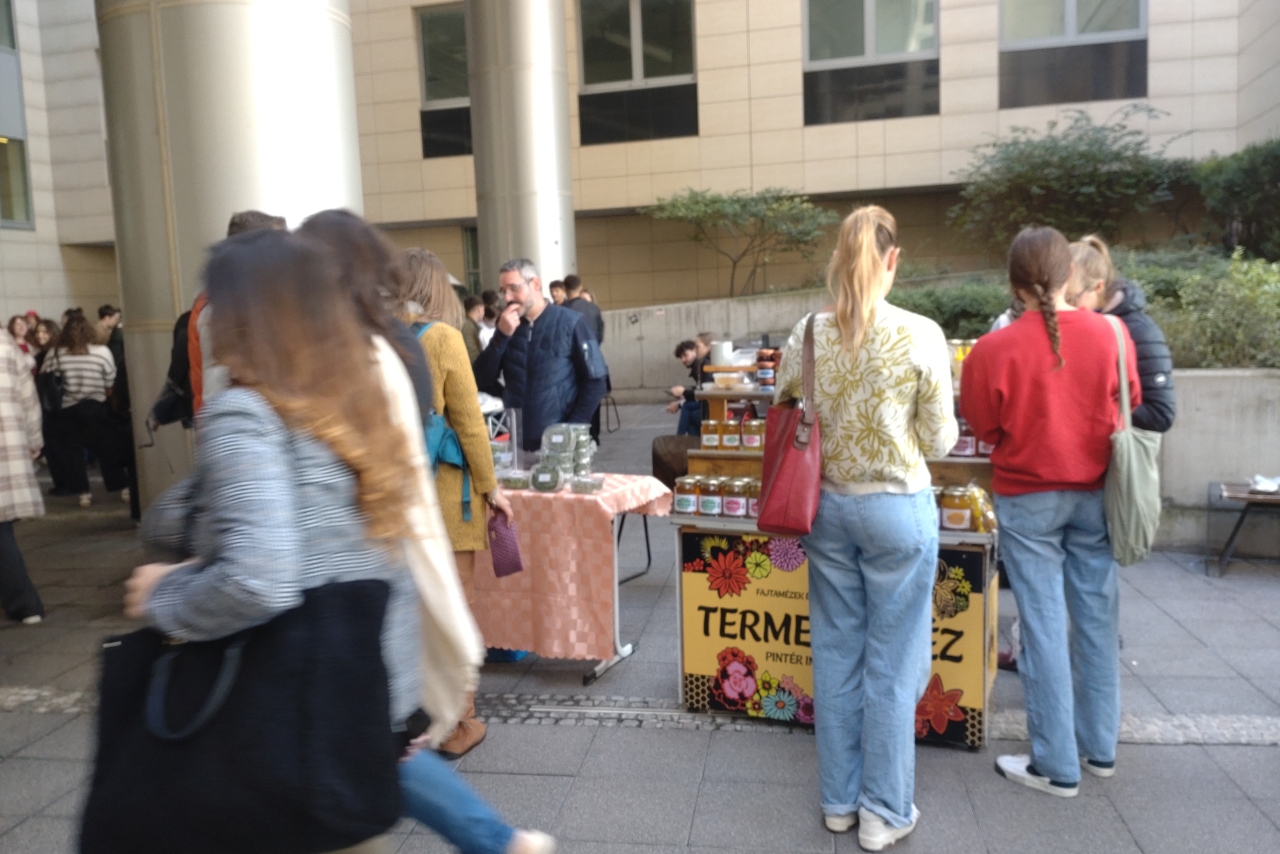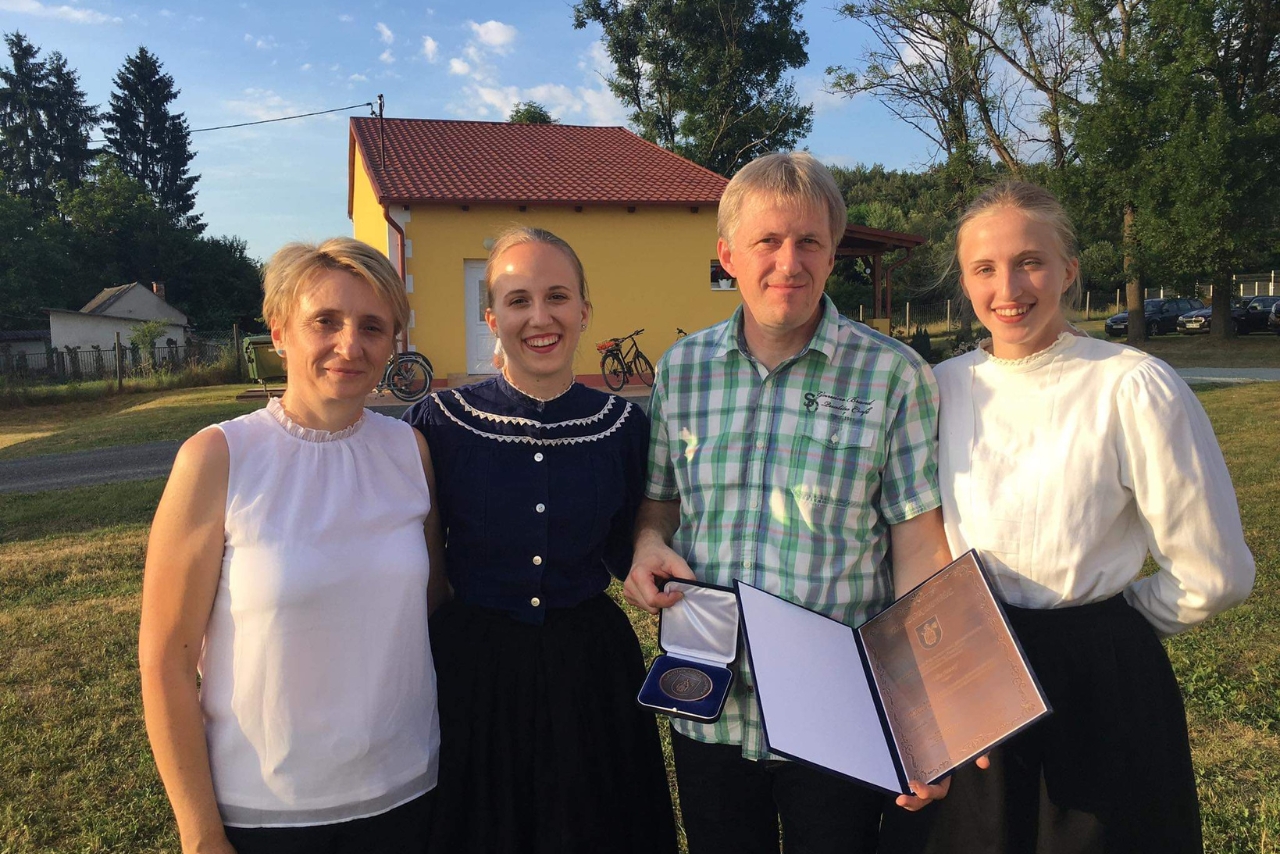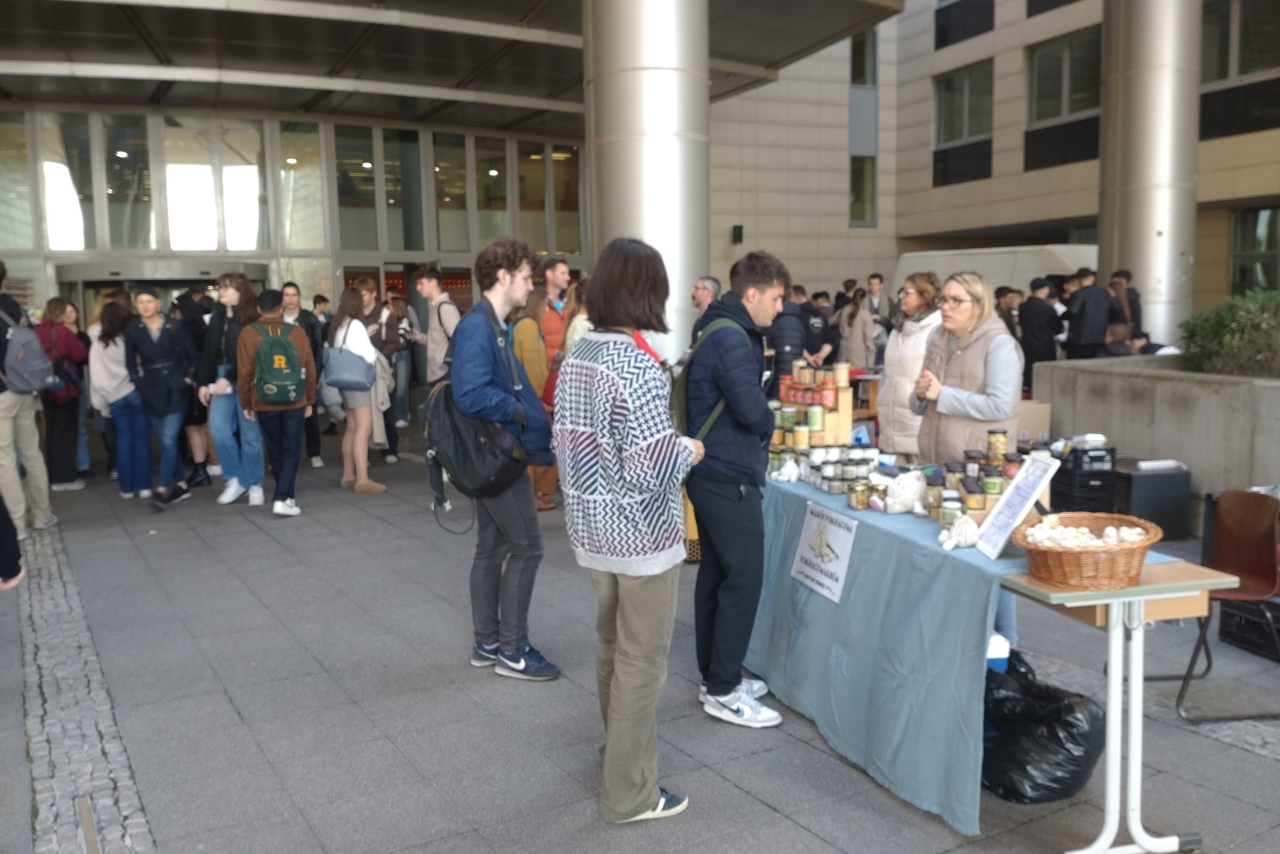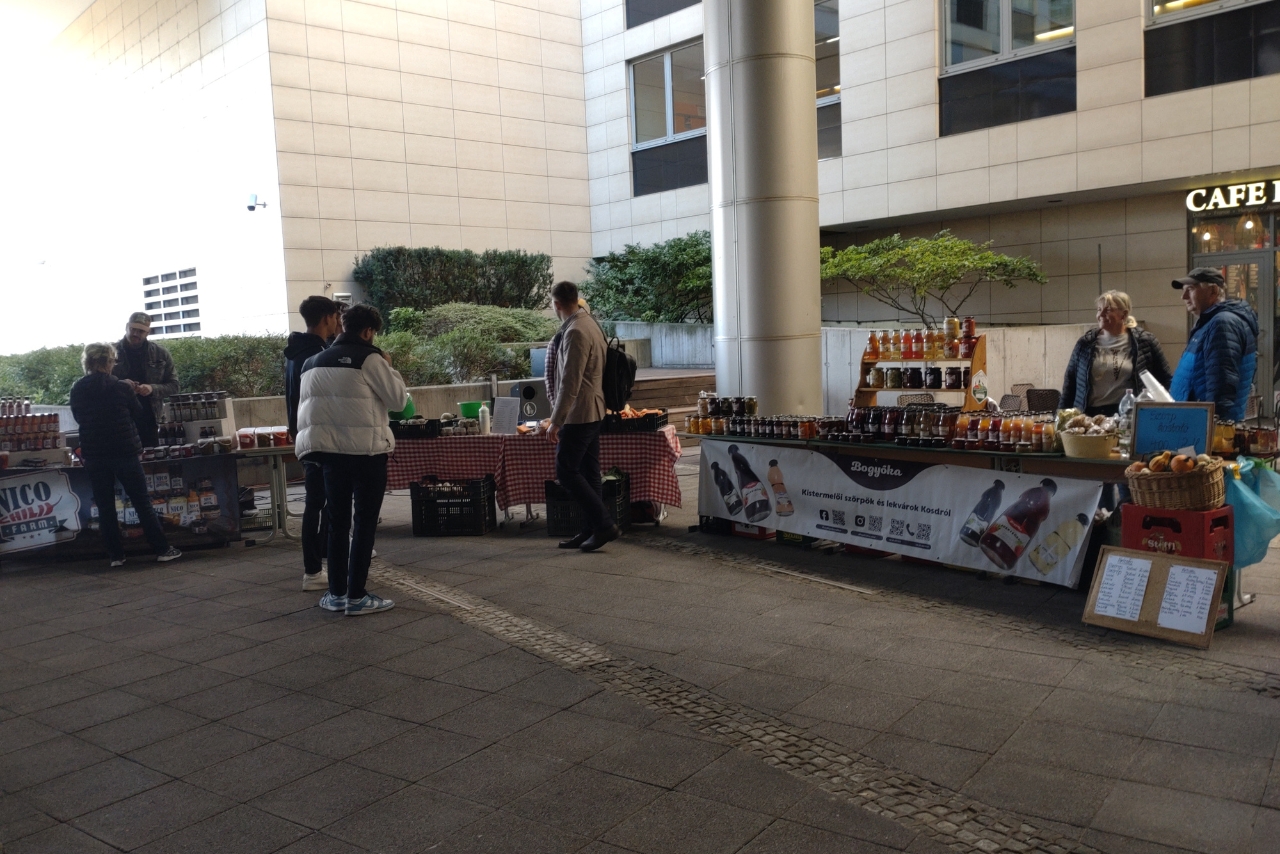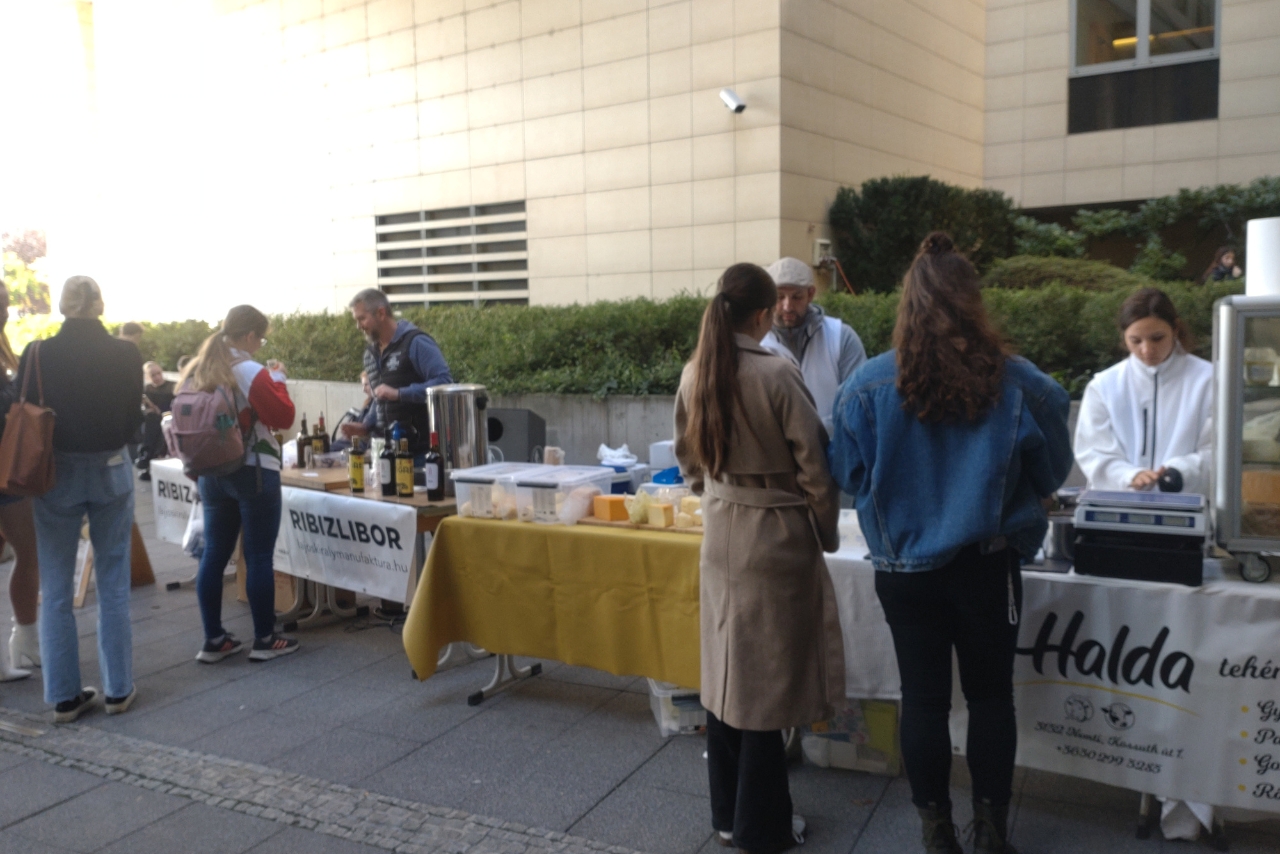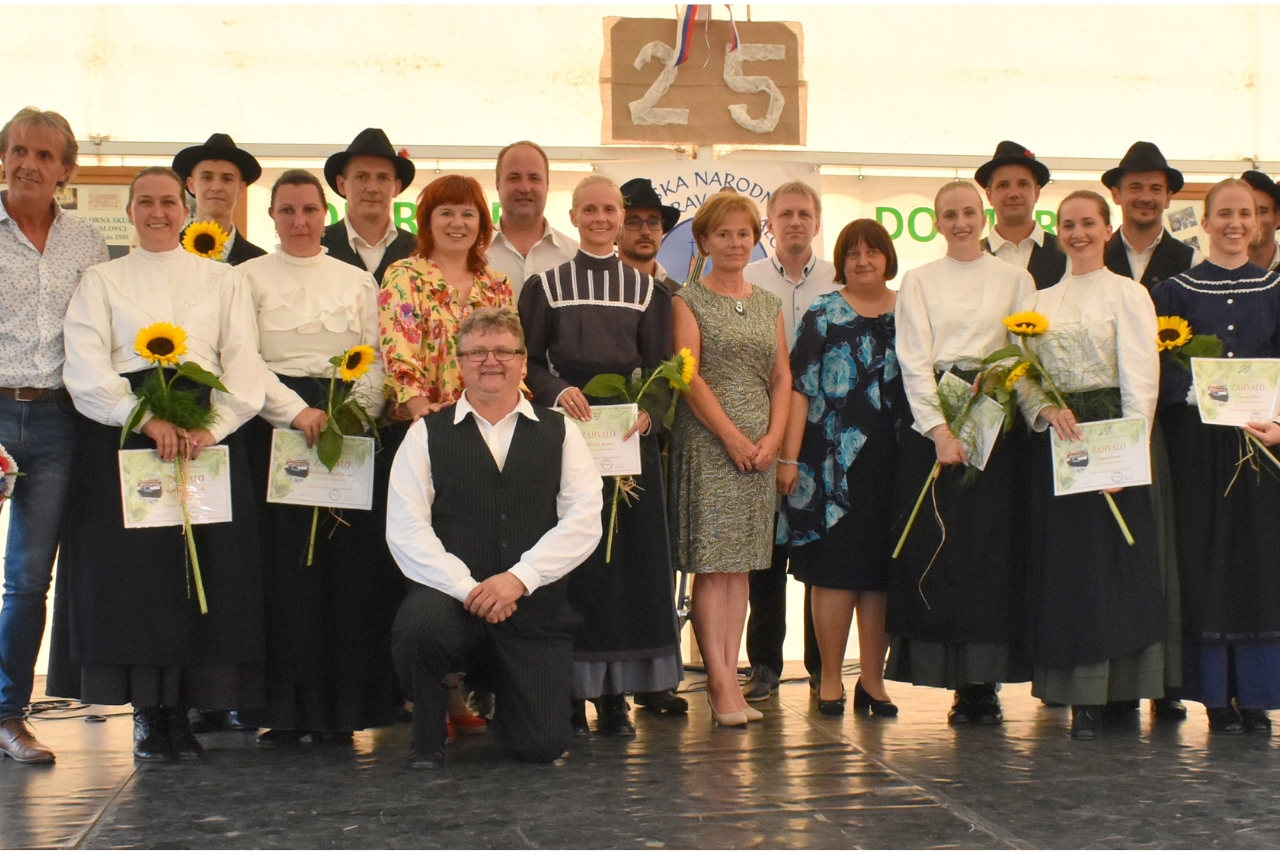“I have brought the Slovenian Rába region to Budapest” – Our student’s story at the Farmers’ Market

Noémi Illés comes to our interview from the westernmost town of Hungary, a place that has defined her whole life so far. She is currently a third-year student of Business and Management, specializing in agribusiness, and will continue her studies in sustainability in the spring term.
I chose Agrobusiness because I would definitely like to come back to Szakonyfalu after my studies and this is the area where I can best use my knowledge. I want to work for the development of the region,
she says, explaining why she chose this specialization.
In addition to her studies, this autumn she has been involved in the Farmers’ Market on campus, introducing her local community to the public.
We live in the Őrség National Park, so environmental protection is very important to us. We are also involved in the Natura 2000 program; my whole family is active in this area. In the summer I started working at the Szlovén Vidék Közhasznú Nonprofit Kft., which supports the Slovenian nationality. I am of Slovenian nationality, and this plays a very important role in my life.
In her free time, she dances folk dance, works with children in various camps and writes for the local newspaper, while she is the youngest member of the Association of Slovenes in Hungary, the first to be elected to the board and the delegation at the age of twenties.
Their work involves collecting products from local producers, helping to sell and develop them.
The Slovenian state launches various tenders for the autonomous Slovene nationalities, and we act as project managers for these tenders. So far, I have been more in charge of the marketing part, and I told Zalán Maró about our community,
she says, explaining how she got in touch with the organizers of the farmers’ market.
By train from the Rába Region to the Corvinus Farmers’ Market
She brought local apple juices to the autumn market, but at first the aim was more to engage in conversation and to show her local community to the public.
I brought everything up in a suitcase on the train, that’s why I chose this,
she says, but they are preparing for the next market with a wider variety of goods.
The Autumn market was a positive experience for Noémi.
During the breaks there was constant crowding at the stalls,
she says.
Later on, I saw students at the university showing each other what special food they had bought, like pumpkin jam, so it turned out to be a really good initiative.
The most popular items were the pastries, but there were also many people at the butcher’s counter.
A lot of people came to see me too. First, people I knew, and then when they saw there were more people, more people came to ask. For me, the most important and positive thing was that I brought the Slovenian Rába region, where I come from, to Budapest. Few people know about it, but now we are better known and that is a bonus as a marketing point,
she says.
We are on the map of many people, Szakonyfalu, Szentgotthárd and the whole Rába region. I was happy to tell my fellow students about it, they were also interested, some of them had already been here before.
Youth can give a new boost to local agriculture
According to Noémi, agriculture in the Slovenian Rába region almost ceased after the communist cooperatives, and it was no longer worthwhile for people to work in agriculture.
We temporarily lost the rural agriculture, but eventually we started to participate in different tenders to revive it, and that’s why the Szlovén Vidék Közhasznú Nonprofit Kft. was founded,
she says.
Their story began with the planting of native apple trees, and then the construction of an apple processing plant where farmers can take their fruit and make juice. The project quickly took off, and a model farm was built to serve on the menu what was grown on the farm.
This serves as a model for other farms and collaborates with producers who are now becoming more widely active,
says Noémi.
Initially there were one or two families involved, but now there are ten to twenty families applying for different activities.
There is already a meat-processing plant started by a 22-year-old boy. This is our main goal, to involve young people in our activities, as there are fewer and fewer people willing to work in agriculture.
Today they also make syrups, creams, apple crisps, fruit crisps and pumpkin seed oil, known as the green gold of the Őrség Mountains and an important part of Slovenian culture.
Sustainability is also an important topic, from as many angles as possible
As Noémi will be continuing her studies in sustainability management in the spring, I, as a student of sustainability, was very interested to know where she got this idea.
I thought that sustainability would fit in very well with the agrobusiness direction. In our area, in the Őrség National Park, environmental protection is a top priority, so it’s great to be aware of that and to be able to help the region as an economist with specific knowledge of sustainability.
As for the future, she is not sure what she wants to do, but she sees gaining experience as the most important goal.
I would like to spend my twenties in Budapest, I would like to work in other companies where I can gain more experience and get a different perspective on business and sustainability,
she says.
I would like to see things from different angles in order to come home and work at home effectively. I think I’m going to work in my home region, in one of the Slovenian organizations, and there are good career opportunities for young people. They are trying to get us involved, and they are paying more and more attention to this, to make sure that there is a future generation. And it will be a question of the future in which field I will take my part in this.
Author: Máté Kovács
